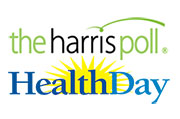- Could Your Grocery Store Meat Be Causing Recurring UTIs?
- Are You Making This Expensive Thermostat Error This Winter?
- Recognizing the Signs of Hypothyroidism
- 10 Strategies to Overcome Insomnia
- Could Artificial Sweeteners Be Aging the Brain Faster?
- Techniques for Soothing Your Nervous System
- Does the Water in Your House Smell Funny? Here’s Why
- Can a Daily Dose of Apple Cider Vinegar Actually Aid Weight Loss?
- 6 Health Beverages That Can Actually Spike Your Blood Sugar
- Treatment Options for Social Anxiety Disorder
Americans Still Divided Over Obamacare


The Affordable Care Act remains one of the most significant — and controversial — achievements of President Barack Obama’s presidency.
And Americans remain deeply divided over the health-care reform law that was signed by Obama five years ago, a HealthDay/Harris Poll released Thursday found.
A consistent 30 percent of Americans favor repeal of the law, although they’re outnumbered by a majority of people who like the law as it is (26 percent) or want to keep the law with some changes (28 percent), the poll revealed.
While the new GOP majority in Congress has vowed to repeal or rework the law, Obama has said he would veto any such efforts.
The results of the new poll are about the same as polls conducted on the Affordable Care Act (ACA) between 2010 and 2012, said Humphrey Taylor, chairman emeritus of The Harris Poll.
“The stability of public opinion on the ACA is remarkable, with attitudes to the ACA as a whole and to many elements of it remaining almost unchanged since the fall of 2012,” Taylor said.
Opposition to, or support for, the law continues to break down along party lines.
The poll found that 54 percent of Republicans favor repeal of the law that requires most Americans to have health insurance or face a financial penalty, while only 8 percent like the law as it is and 25 percent would like to see it modified.
Conversely, 44 percent of Democrats want the law to remain as it stands, with 28 percent supporting modifications and only 9 percent in favor of repeal.
Interestingly, people are less likely to support repeal when asked about specific provisions of the Affordable Care Act, often referred to as Obamacare. For example:
- 70 percent of respondents favor the provision that guarantees insurance coverage regardless of pre-existing health conditions.
- 62 percent like the ability to keep children on their parents’ insurance plans until they turn 26.
- only 18 percent want to repeal the health insurance exchanges, which are federal or state-run marketplaces that allow consumers to buy insurance online.
The only provision of the law that remains widely unpopular is the so-called individual mandate — the law’s linchpin that requires almost all adults to have insurance or face a fine (52 percent want it repealed). The law’s architects, led by Obama, insist that the mandate is the only way to ensure that enough healthy people are in the insurance pools to offset the costs of sick people.
“Attitudes to the ACA seem like perceptions of the forest and the trees,” Taylor said. “Most people seem to like many of the trees — the key elements of the ACA — while remaining hostile or cool to the forest, the ACA as a whole. In part, this reflects a general opposition to ‘big government’ playing a larger role, and to continuing misinformation about what is and is not in the ACA.”
The poll also revealed that a plurality of respondents (43 percent) want the U.S. Supreme Court to maintain the availability of federal health coverage subsidies for people in states that did not opt to create their own insurance exchanges. Nineteen percent oppose the subsidies and 38 percent said they aren’t sure.
The Supreme Court has agreed to hear arguments this year in King v. Burwell, a case in which ACA opponents claim that the law as written does not allow the federal government to provide subsidies to people whose states chose not to create their own insurance exchanges.
Nearly 5 million people have received subsidies to help them purchase health insurance, according to the White House. On average, the subsidies cover 76 percent of people’s premiums, or $264 of total monthly premiums averaging $346, the Associated Press reported.
Democrats tend to favor continuation of the subsidies (by 59 percent to 8 percent), while Republicans are more evenly split (36 percent opposing the subsidies and 27 percent favoring them).
Ron Pollack, executive director of the health consumer advocacy group Families USA, said the poll results are “consistent with what we have seen with other data.”
“The majority of Americans do not want to see the Affordable Care Act repealed,” Pollack said. “There’s a clear majority who do not want to see this legislation repealed, and that includes those who don’t want to see the subsidies that make health coverage affordable taken away.”
Pollack said the general opposition to the ACA appears to be driven largely by dislike of Obama, who points to the health-reform law as one of the highlights of his administration.
“When you see the term ‘Obamacare,’ many people will react to their opinions of President Obama rather than their understanding of what is in the Affordable Care Act,” he said. “Additionally, there’s been so much really virulent propaganda about the law that people think there must be something wrong with it.”
Adam Searing, a senior research fellow on health policy at Georgetown University, said Americans’ consistent opinion of the Affordable Care Act “reflects the continuous political back-and-forth, rather than people’s actual experience.”
Searing said many people have no opinion on the Supreme Court case on insurance subsidies because implementation of the subsidies has been easy for consumers.
“A lot of people on those exchanges don’t even think about the subsidies. They just think, ‘I’m getting a great price,'” he said. “It really hasn’t gotten through to the public yet that those great prices can all go away.”
The HealthDay/Harris Poll was conducted online, in English, within the United States between Jan. 29 and Feb. 2, 2015 among 2,028 U.S. adults 18 and older. Figures for age, sex, race/ethnicity, education, region and household income were weighted, where necessary, to bring them into line with their actual proportions in the population.
More information
To learn more about the Affordable Care Act, visit the U.S. Department of Health and Human Services.
To view the poll’s data tables, click here.
Source: HealthDay
Copyright © 2026 HealthDay. All rights reserved.










